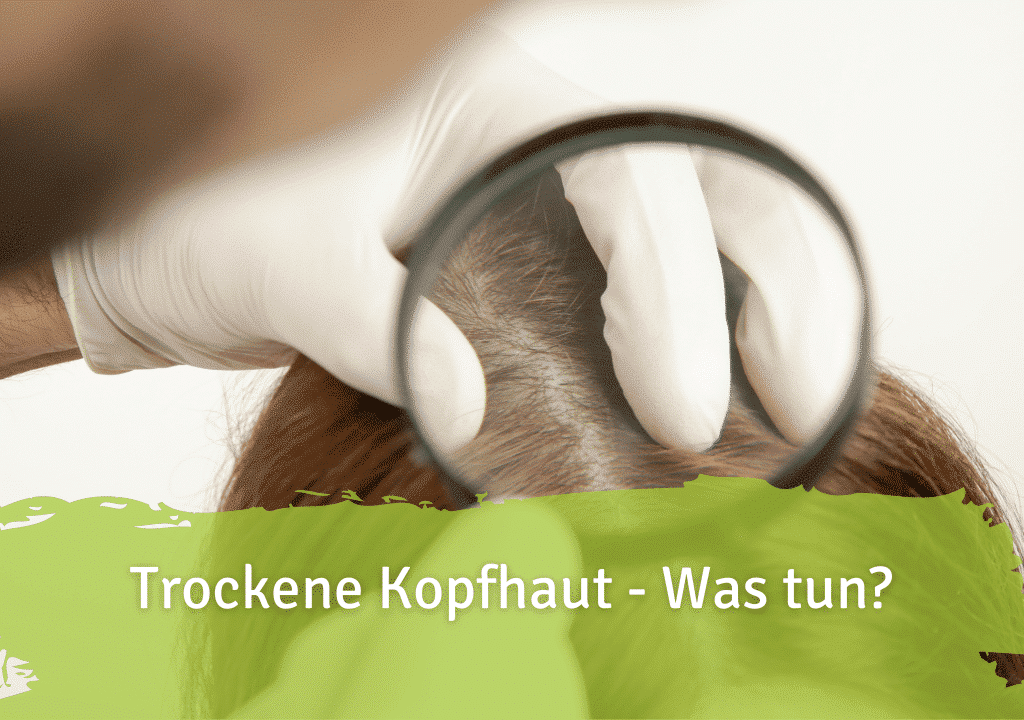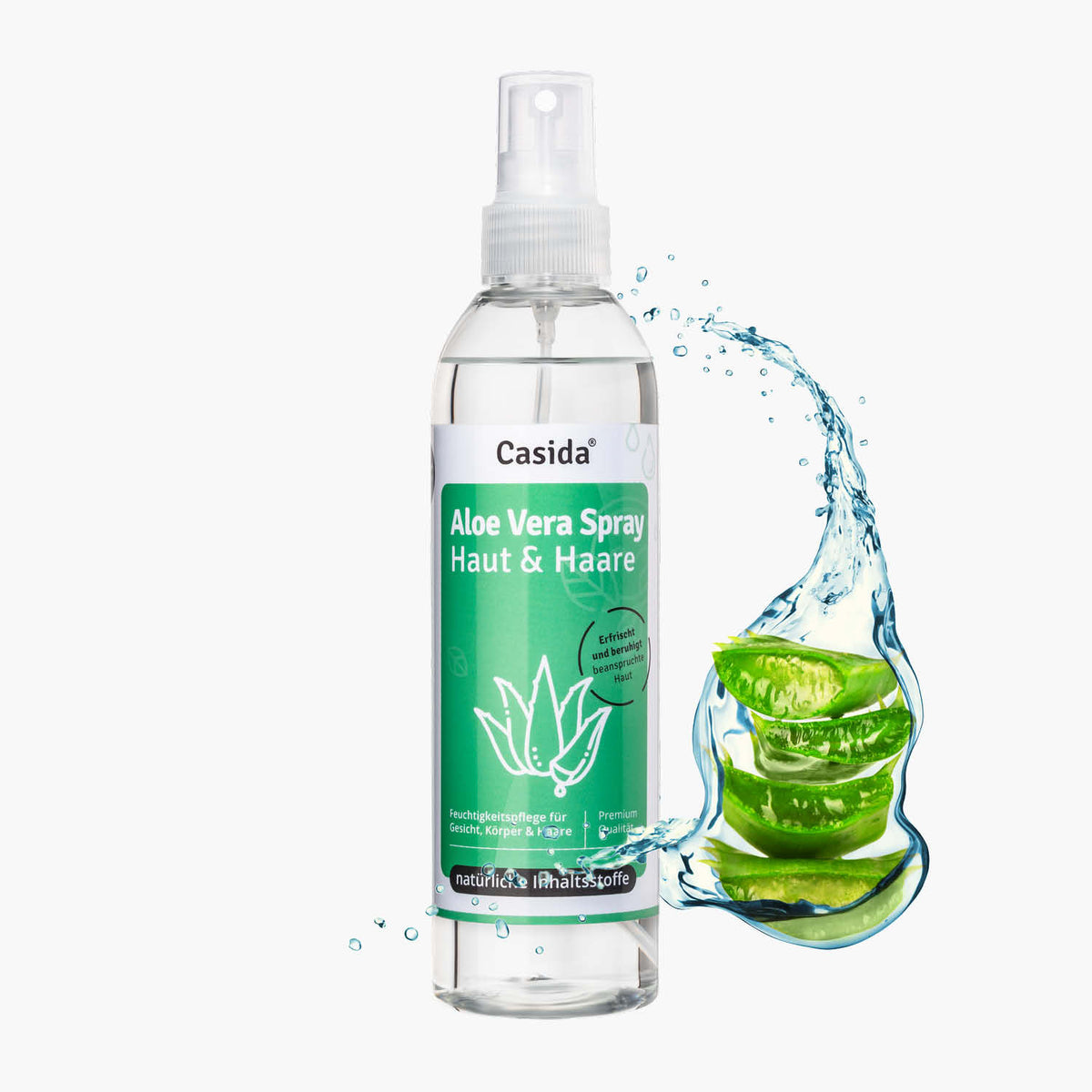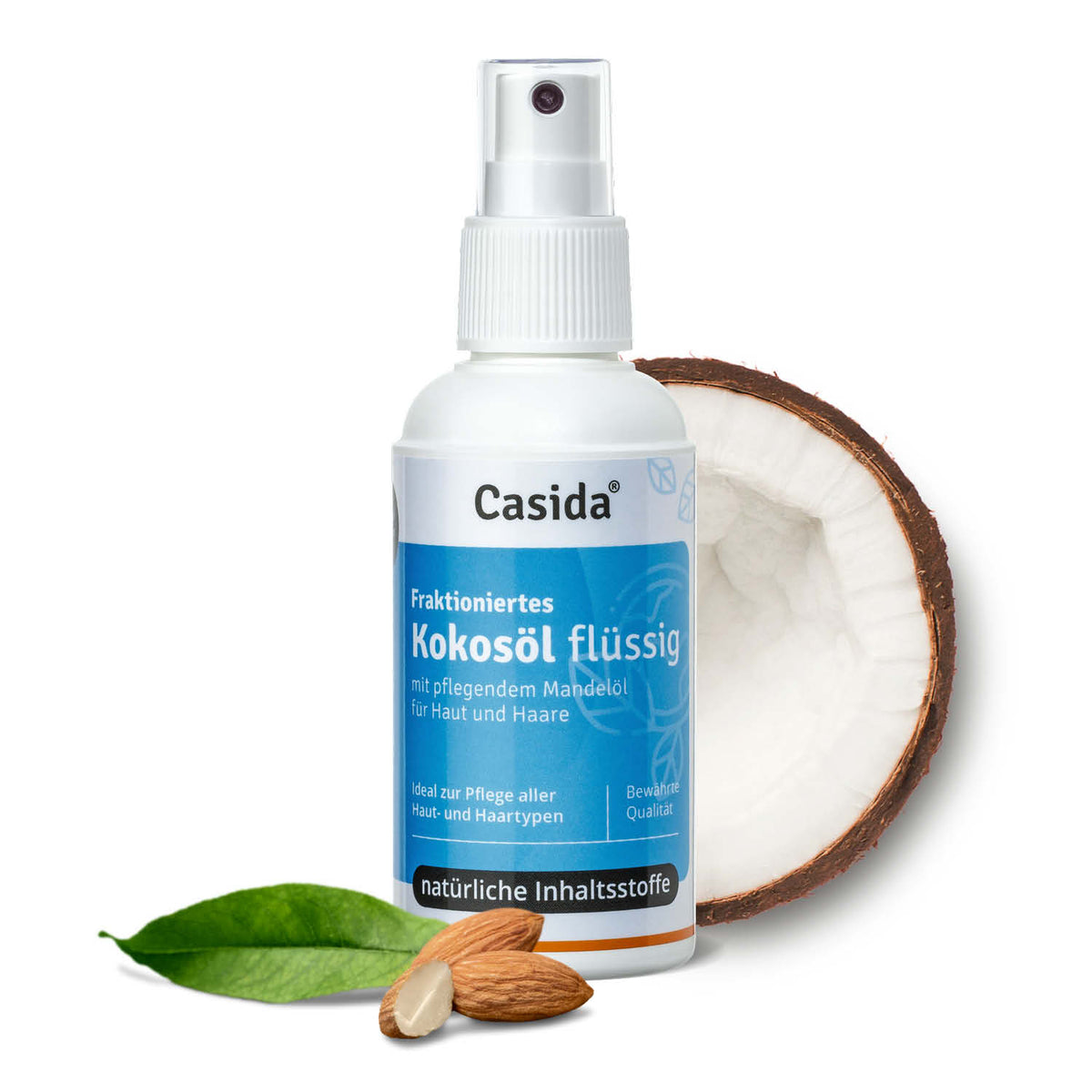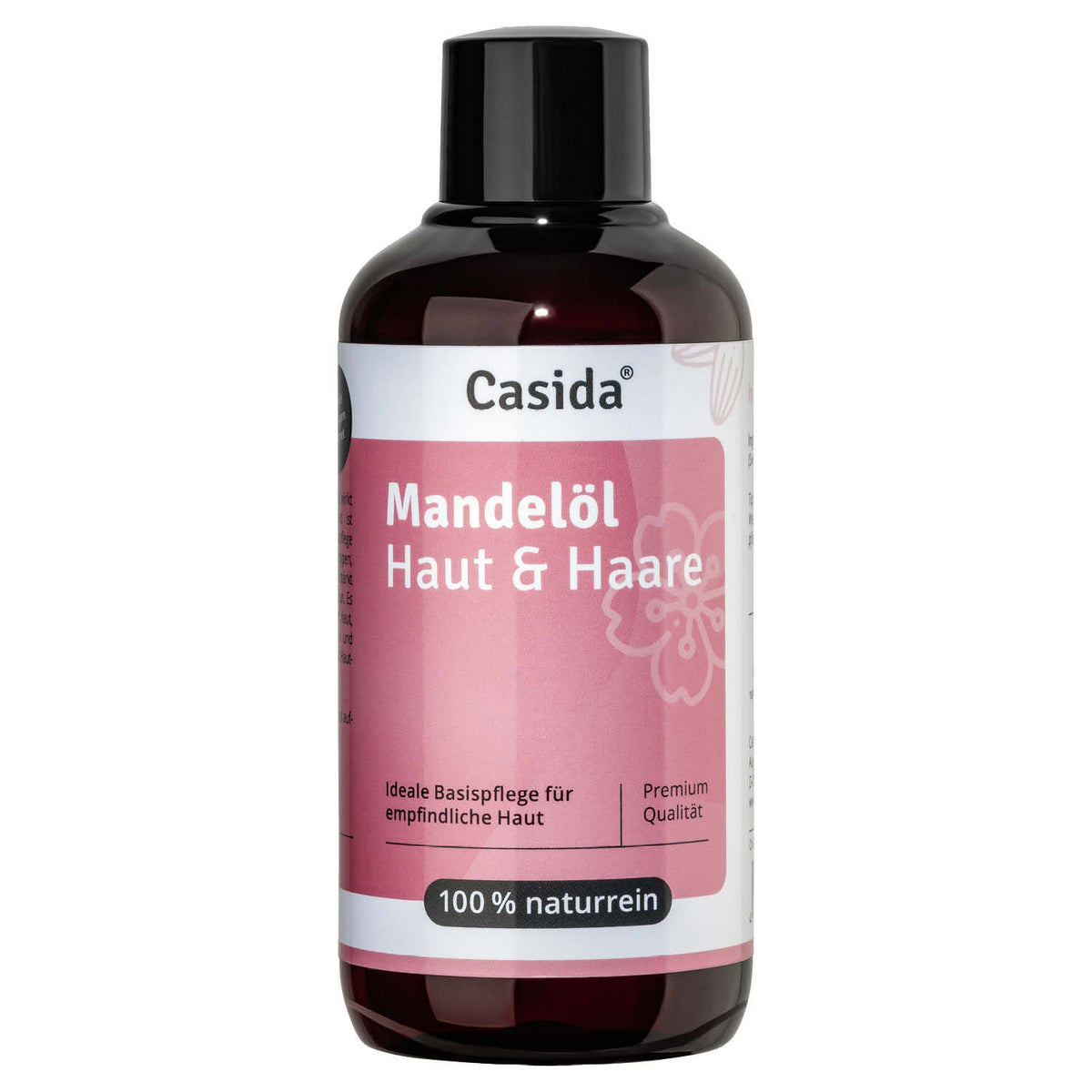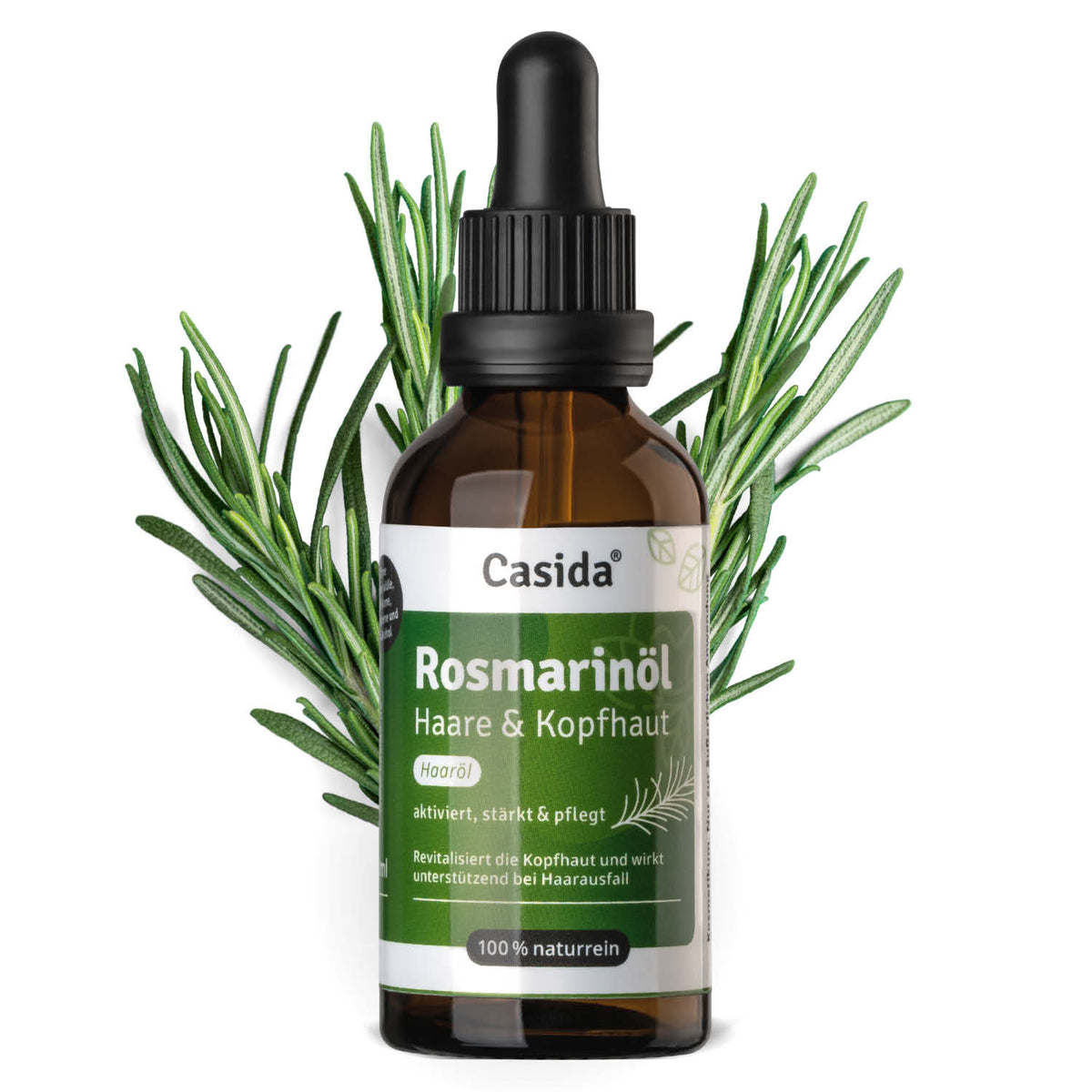Dry scalp means suffering with your skin and hair.
Itching, tightness, and increased dandruff are signs that your scalp is too dry. There are many reasons for this: internal and external causes can contribute to the suffering, promote it, or even worsen it. The good news: the problem can be solved, often in a very simple way. Today at Casida, you'll learn everything you need to know: We'll clarify the most important questions about the problem: Where does a dry scalp come from? What helps against it? What are the best useful and helpful tips for proper scalp and hair care?
Table of Contents
How do you recognize a dry scalp?
The first signs of a dry scalp are usually an unpleasant feeling of tightness and excruciating itching. You constantly want to scratch your head, but it doesn't provide any relief. Increased dandruff and redness are also signs of an overly dry scalp. The hair appears somewhat limp, dry, and brittle. Those affected should first determine that there is no underlying skin condition (eczema or psoriasis). A dermatologist can quickly help.
Causes of dry scalp
A dry scalp occurs when the scalp lacks sebum and/or moisture. This disrupts the acid mantle, which normally protects the skin and hair. As a result, the scalp becomes tight and itchy, leading to increased and annoying dandruff formation. The natural acid mantle can become unbalanced due to internal and external factors. Internal factors include genetic predisposition, skin aging, skin and other diseases, malnutrition, stress, medication, and dehydration. External triggers include heat (washing and blow-drying with excessive heat), environmental irritants such as air pollution, an unhealthy lifestyle, and the use of unsuitable shampoos and other care products.
What can I do about dry scalp?
The primary goal in effectively combating dry scalp is to restore the healthy acid mantle. This is the only way to compensate for the lack of lipid-replenishing sebum and moisture in the long term. This is best achieved with effective shampoos and other suitable care products. When choosing the right shampoo, make sure it contains mostly natural active ingredients, is mild, and has a pH value that is as neutral as possible. Ideally, it also has skin-soothing and moisturizing properties. After shampooing, moisturizing and refatting products that gently care for the hair and soothe skin irritations help with dry scalps.
Our Aloe Vera products and Care oils are true miracle cures, as they care for, protect, and regenerate irritated skin and pamper the hair with an additional moisture boost. Casida Aloe Vera is available as a spray and gel, can be easily applied in between treatments, and provides deep-acting moisture. Our highly effective care oils are also wonderfully suited to intensively moisturize dry skin and hair and restore the natural acid mantle. All our care oils are purely natural products and rich in regenerating antioxidants.
Which home remedies help with dry scalp?
In addition to special care products for dry scalp from drugstores or pharmacies, some home remedies have also proven effective. Many people swear by the so-called "acidic rinse" when the scalp feels tight after washing their hair. Simply apply apple cider vinegar, pure or mixed with a nourishing herbal blend, directly to damp hair and let it work for a short time. Healing herbs that soothe the skin include chamomile, calendula, rosemary, and St. John's wort.
Regular oil treatments have also proven effective, especially if left on overnight. The oils, with their unsaturated fatty acids, restore oil and moisture to the skin and hair. Olive oil, almond oil for skin and hair, coconut oil, and rosehip oil are particularly suitable. A curd treatment every two to three weeks also helps with the care of a dry scalp. Curd has a soothing effect and moisturizes the uppermost irritated layers of skin. The curd can be enriched and diluted with aloe vera and a nourishing oil. It is then applied, gently massaged in, and rinsed out with lukewarm water after about 20 minutes.
The Right Care Routine for Dry Scalp
Those who tend to have a dry scalp should try not to wash their hair every day. And if you do, use lukewarm water if possible. Blow-drying afterwards should also be avoided if possible. It's better to let your hair air dry. Then treat it with a nourishing oil. Casida's almond oil is excellent for this. It strengthens the skin, soothes skin irritations, and promotes cell regeneration. It also intensively moisturizes the hair, making it smooth and supple. Our rosehip oil also helps. The unsaturated fatty acids it contains provide skin and hair with intensive lipids and moisture. It nourishes, pampers, and protects skin and hair in a completely natural way.
Even a little moisture booster here and there can't hurt for a dry scalp. Our aloe vera products, whether in gel or spray form, provide skin and hair with an extra dose of moisture and valuable nutrients. Simply apply and let it work. This allows our aloe vera products to unfold their full effect quickly and without leaving any residue. Hair becomes smooth and shiny, and the scalp appreciates the extra moisture.
Lea Becker is a freelance journalist specializing in health and beauty. She studied journalism at the AMD Düsseldorf and writes for renowned trade journals, print and online magazines. Her focus is on natural health maintenance, skin care, and decorative cosmetics.
Important Note / Disclaimer: As pharmacists, we share our pharmaceutical expertise and wealth of naturopathic experience in the Casida guide. An individual diagnosis and consultation are always necessary. Therefore, this offer cannot replace medical advice. This offer is not intended to treat, cure, or prevent any disease. It is not a substitute for medication or other treatments prescribed by a doctor.




